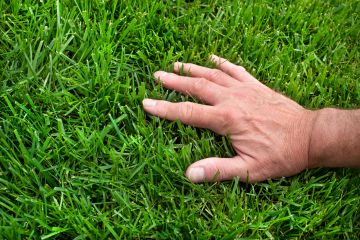Bermuda and fescue are two different types of grass that are found in many yards and sports fields. Bermuda grass is a perennial type of grass and is also referred to as warm season grass.
Fescue is an annual type of grass that does not survive the winter months. This article will compare and contrast the differences between Bermuda and fescue grasses to help you make the best decision on what type of grass to plant in your yard or sports field.
Summary Table
| Bermuda | Fescue |
| Perennial type of grass | Annual type of grass |
| Spreads rapidly in warm climates | Can survive in colder climates |
| Thrives during summer and spring seasons | Thrives during fall and winter seasons |

Definitions
Bermuda grass is a perennial that is similar to bluegrass. It is a warm-season grass, which means it only grows in the summer months. The leaves of this grass are upright and green.
Bermuda Grass needs full sun to grow well. This type of grass grows best in areas with lots of moisture and soil that drains well so it can grow deep roots.
However, this type of grass can grow anywhere because it has shallow roots that are found just below the surface soil level. For Bermuda Grass to be successful in your landscape or garden, you need to follow some tips for growing Bermuda grass:
Fescue grass is a cool-season grass. It grows best in the spring and fall months, which are two of the rainiest months of the year.
To grow fescue grass, you need to provide it with lots of water. You also need to make sure your soil drains well and is at least six inches deep for it to grow well.
Since fescue grass does not require much maintenance, you do not have to worry about its care very often. You can expect your fescue grass to have some height after three years or so of growing in your landscape or garden.
Difference Between Bermuda and Fescue
The main difference between fescue and Bermuda grass is that Bermuda grass does not survive the winter months. Fescue is an annual type of grass that survives in colder climates.
Bermuda Grass has finer leaves and a softer feel than fescue. This means that it will not stand up to heavy wear and tear like fescue would stand up to during sports games or any other heavy-use areas.
This softness can make it easier for children or pets to damage or destroy the turf with their play activities or pets, respectively. It also makes it easier for you to mow your lawn since it does not have as much bulk as fescue does.





